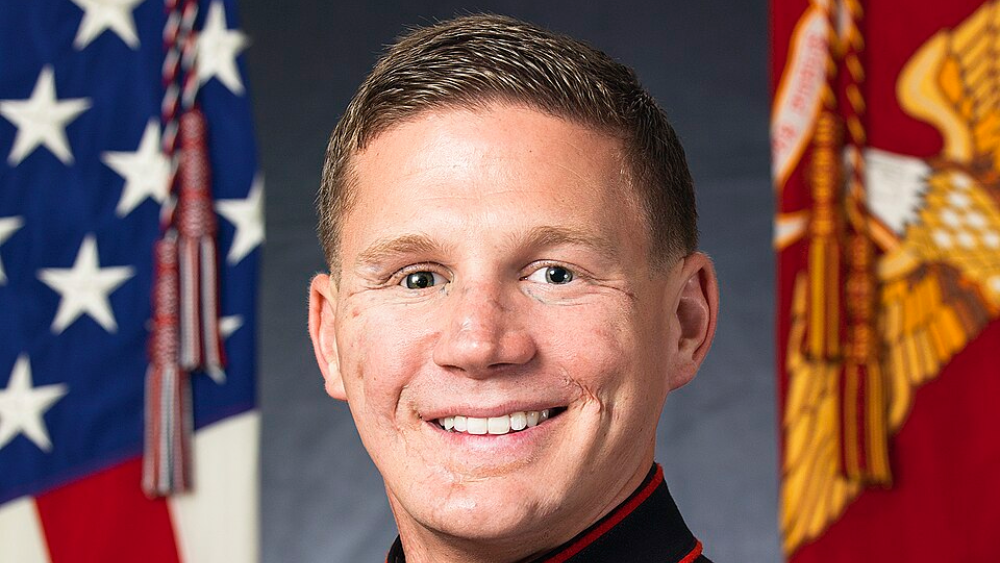In the long and proud history of the United States Marine Corps, few names resonate with such raw courage and inspirational strength as Kyle Carpenter. As a Medal of Honor recipient, Kyle’s story is one of extraordinary sacrifice, profound patriotism, and a deep-rooted resilience that continues to inspire Americans across generations.
At just 21 years old, Carpenter became the youngest living Medal of Honor recipient, but his legacy is far greater than the medal itself. His journey—marked by battlefield heroism, an arduous recovery, and tireless advocacy for Veterans. This embodies what it means to never give up, never back down, and always lead with heart.
Early Life and the Call to Serve
William Kyle Carpenter was born on October 17, 1989, in Jackson, Mississippi, and raised in Flowood, a suburb of Jackson. From an early age, Kyle exhibited a strong sense of discipline, humility, and service. While many of his peers were choosing college paths, Carpenter felt an undeniable call to serve his country.
In 2009, just one year after graduating from high school, Carpenter enlisted in the United States Marine Corps. His journey led him to become a Lance Corporal, a title that would soon be etched in history.
Afghanistan Deployment: A Life-Altering Tour
In July 2010, Carpenter deployed to Helmand Province, Afghanistan. This is one of the most dangerous and volatile areas in the region during the U.S. military surge.
Carpenter served as a machine gunner with Fox Company, 2nd Battalion, 9th Marines, Regimental Combat Team 1, part of 1st Marine Division (Forward). The mission? To stabilize the region, disrupt Taliban activity, and support Afghan civilians caught in the crossfire.
Life in Helmand was grueling. Daily firefights, constant IED threats, and the harsh terrain tested every Marine’s physical and mental endurance. But Carpenter stood out—not for boasting or bravado, but for his dedication to his brothers-in-arms.
November 21, 2010: The Day That Changed Everything
The moment that would define Kyle Carpenter’s legacy happened on the rooftop of a mud compound in the Marjah District. Carpenter was posted with fellow Marine Lance Cpl. Nicholas Eufrazio, manning a security post to watch over their unit.
Suddenly, a Taliban fighter hurled a hand grenade onto the rooftop.
In a split second—a moment that speaks volumes about his character—Carpenter threw his body toward the grenade, shielding his comrade from the blast.
The explosion was devastating.
Kyle’s body absorbed nearly the full force of the detonation. His injuries were catastrophic: he lost his right eye, shattered much of his face, broke multiple bones, and sustained severe injuries to his right arm and jaw. The initial prognosis was grim. Medical personnel declared him “clinically dead” upon arrival at the field hospital.
But Kyle Carpenter refused to die.
The Long Road to Recovery
What followed was a remarkable recovery journey that would span more than 40 surgeries. Also, it was nearly three years of rehabilitation at Walter Reed National Military Medical Center.
The physical pain was immense, but even more challenging was the mental and emotional battle. Yet, throughout it all, Carpenter maintained an unshakeable positivity and a sense of gratitude for life that inspired everyone around him.
In his own words:
“I was given a second chance at life, and I try to live every day in a way that honors that.”
He became a beacon of hope for other wounded Veterans, visiting hospitals, sharing his story, and proving that the human spirit could overcome even the most traumatic experiences.
Medal of Honor: Recognizing Heroism Beyond the Battlefield
On June 19, 2014, President Barack Obama awarded Kyle Carpenter the Medal of Honor during a ceremony at the White House. The Medal of Honor is the nation’s highest military decoration, reserved for acts of valor that go far beyond the call of duty.
President Obama described Carpenter’s actions as:
“A moment of incredible selflessness that saved a fellow Marine and showed the essence of true heroism.”
Carpenter received the award not just with humility, but as a voice for all those who serve—and especially for those who never made it home.
A New Mission: Life After the Medal
After his retirement from the Marine Corps in 2013, Carpenter didn’t settle into the shadows. Instead, he embraced his next mission: inspiring others.
He enrolled at the University of South Carolina, earning a degree in International Studies. While there, he served as a symbol of perseverance for his peers and gave motivational talks around the country.
In 2019, he published his memoir titled “You Are Worth It: Building a Life Worth Fighting For.” The book offers a candid, heartfelt account of his life—from childhood to the battlefield, through recovery, and into his new life of purpose. It quickly became a bestseller and a powerful resource for readers facing adversity of all kinds.
He also launched a podcast and became a public speaker, addressing audiences that included Veterans, students, corporate leaders, and nonprofit organizations.
His message was consistent and clear:
“Every day is a gift. No matter what you’ve gone through, you can come back stronger.”
Advocacy, Service, and Giving Back
Kyle Carpenter has become a fierce advocate for Veterans’ issues, from access to healthcare and mental health support to reintegration into civilian life. He supports organizations that work to combat PTSD, fund adaptive housing, and help wounded warriors transition successfully after service.
He often collaborates with the Wounded Warrior Project, Gary Sinise Foundation, and other nonprofits dedicated to honoring military families and empowering disabled Veterans.
Carpenter’s voice holds unique power—because he’s lived the reality. He speaks not just with authority, but with deep empathy.
A Symbol of Hope and Humanity
In today’s world, where stories of division often dominate headlines, Kyle Carpenter represents something different: hope, unity, and the best of humanity.
His story reminds us that heroism is not always about grand gestures—it’s about courage in the face of fear, selflessness in the service of others, and the willingness to sacrifice for something greater than oneself.
He has repeatedly said he doesn’t consider himself a hero. In his own words:
“The heroes are the ones who didn’t make it back. I’m just fortunate enough to live for them.”

Honors and Media Appearances
Kyle’s inspirational story has led to widespread recognition beyond military circles. He’s been featured on numerous news outlets, including CNN, NBC, and Fox News. He has even spoken at major conferences and universities.
His social media presence, particularly on Instagram, showcases his post-recovery life: skydiving, long-distance running, fitness, speaking events, and heartfelt moments with Veterans and civilians alike.
He uses these platforms not to seek fame, but to share light, strength, and the belief that every person has worth.
A Message That Resonates
Perhaps what makes Kyle Carpenter’s story so resonant is that it’s not only about war—it’s about life after war. It’s about what we do with our second chances, and how we choose to write the rest of our story after being broken.
His message isn’t just for veterans. It’s for anyone who’s faced hardship, trauma, or personal loss. Carpenter proves that pain doesn’t have to define you—your response to pain does.
Conclusion: Living a Life Worth Fighting For
Kyle Carpenter didn’t wake up on the morning of November 21, 2010, knowing he’d soon make a decision that would change his life forever. But when the moment came, he acted with pure, unfiltered courage.
Today, he lives as a testament to that moment—not just as a Medal of Honor recipient, but as a man who chose to live for others, to find purpose through pain, and to honor those who never returned.
In a world often filled with cynicism, Carpenter’s life reminds us that bravery still exists, that hope is always possible, and that one person—through sacrifice and heart—can impact millions.











